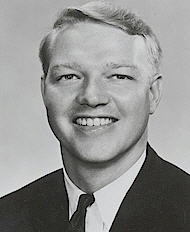 When I grew up in New Jersey in the ’70s and into the ’80s, one of the constants in my life was my father’s love of the Philadelphia Phillies. Throughout the Spring and Summer, we would turn the rotor Antenna toward Philly and bring in snowy Channel 17, WPHL, to watch the game and listen to Harry Kalas and Richie Ashburn. When we were on the road we would listen to them as well, as one would provide coverage on the TV and the other on the Radio.
When I grew up in New Jersey in the ’70s and into the ’80s, one of the constants in my life was my father’s love of the Philadelphia Phillies. Throughout the Spring and Summer, we would turn the rotor Antenna toward Philly and bring in snowy Channel 17, WPHL, to watch the game and listen to Harry Kalas and Richie Ashburn. When we were on the road we would listen to them as well, as one would provide coverage on the TV and the other on the Radio.
Part of following a sport on TV is listening to commentary. A bad announcer can really turn off someone, whereas a good announcer can bring a new dimension to the entertainment. Everyone has their favorites, and there have been legends, like Murray Walker for Formula 1, and Howard Kosel for boxing and football.
In baseball in San Francisco we think of Lon Simmons and John Miller. St. Louis and Chicago had Harry Caray, and in NY it was people like Ralph Keiner and Phil Rizzuto, who passed away in 2007.
Some years ago Hall-of-Famer Richie Ashburn died of heart attack in his room on the road. Now legendary broadcaster Harry Kalas, the dean of the game caller core, as also died, after having collapsed in the Phillies’ broadcast booth. You may also recognize his voice from This Week in the NFL, but those of us who followed the Phillies got to enjoy him at his best, when they won the NL series in ’80, and then the World Series. We escaped from the grim ’70s, when interest rates and unemployment skyrocketed, when the Soviet Union was strong, and when Iran held Americans hostage, to listen to Ashburn and Kalas, who were low key when that was called for, and pitched when it seemed appropriate.
When an entertainer dies, we lose our escape. Reality intrudes in a most unwelcome way, and our constants are no longer constant. It is not just a loss for his family, but for the fans. The bubble bursts, and we see what we are reminded of all we tried to escape, including our own mortality.
Rest in peace, Harry Kalas, and my escapes from the ’70s.
 Some time ago
Some time ago I don’t have all the details, but a quick look at
I don’t have all the details, but a quick look at